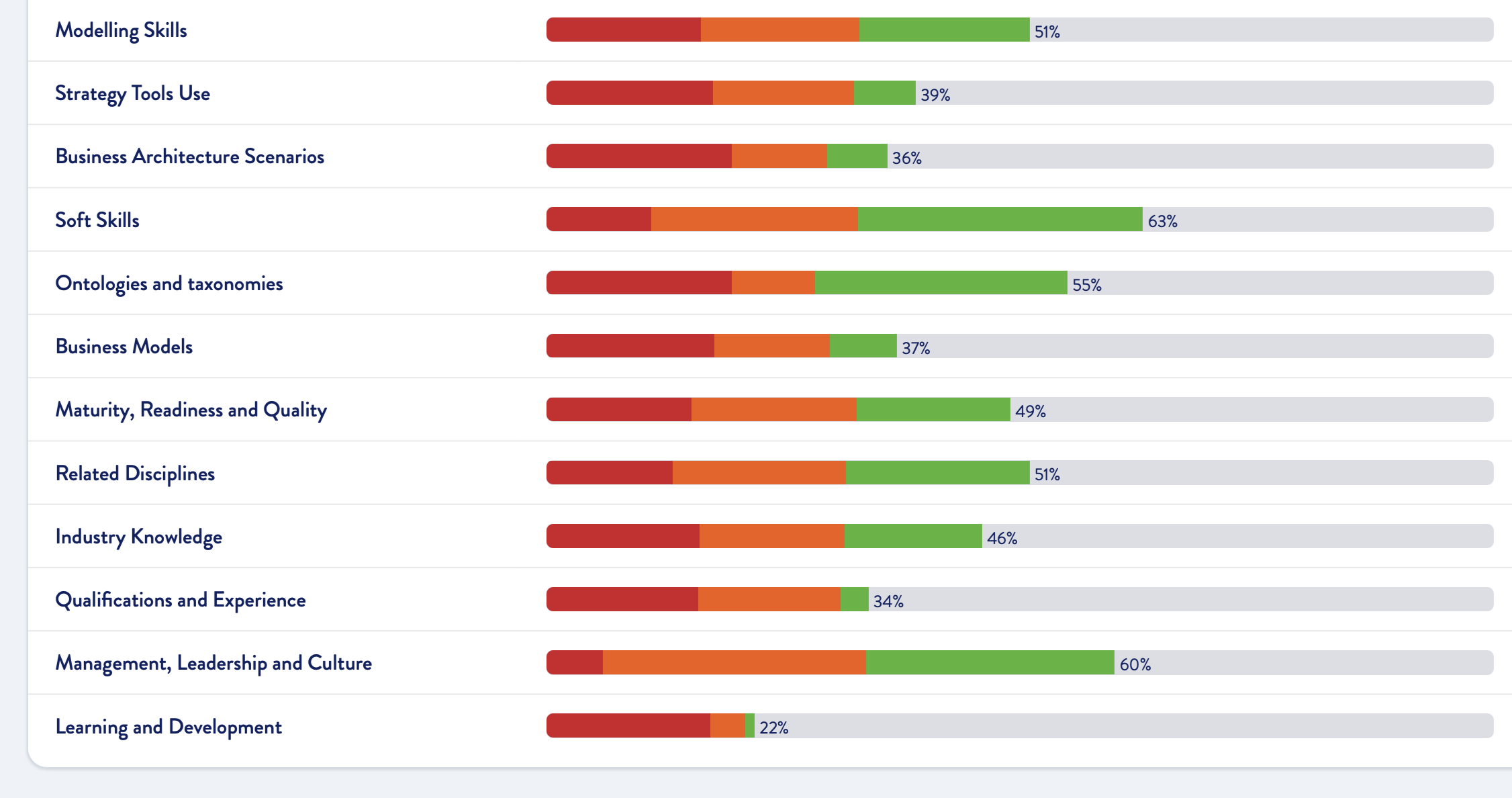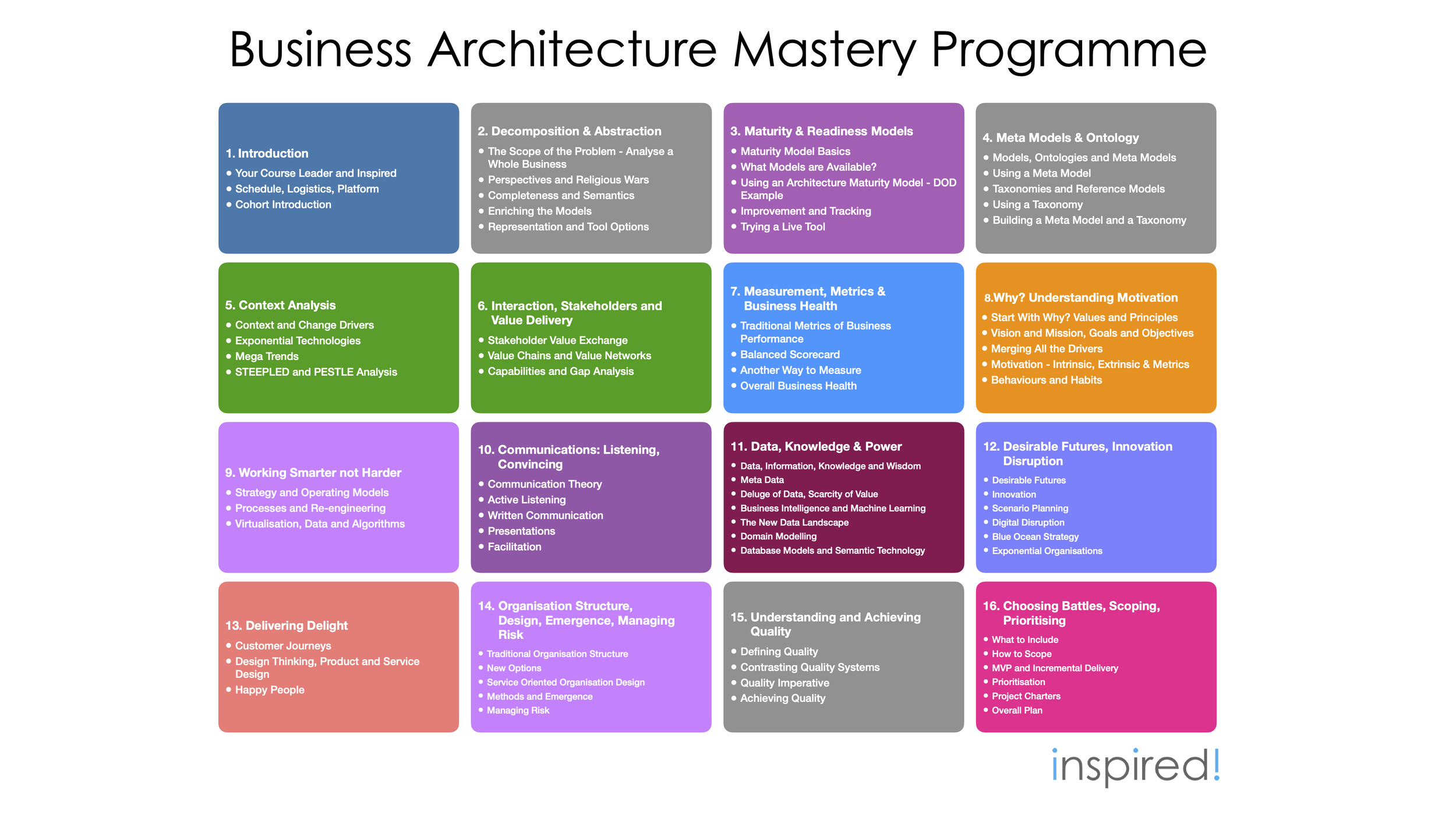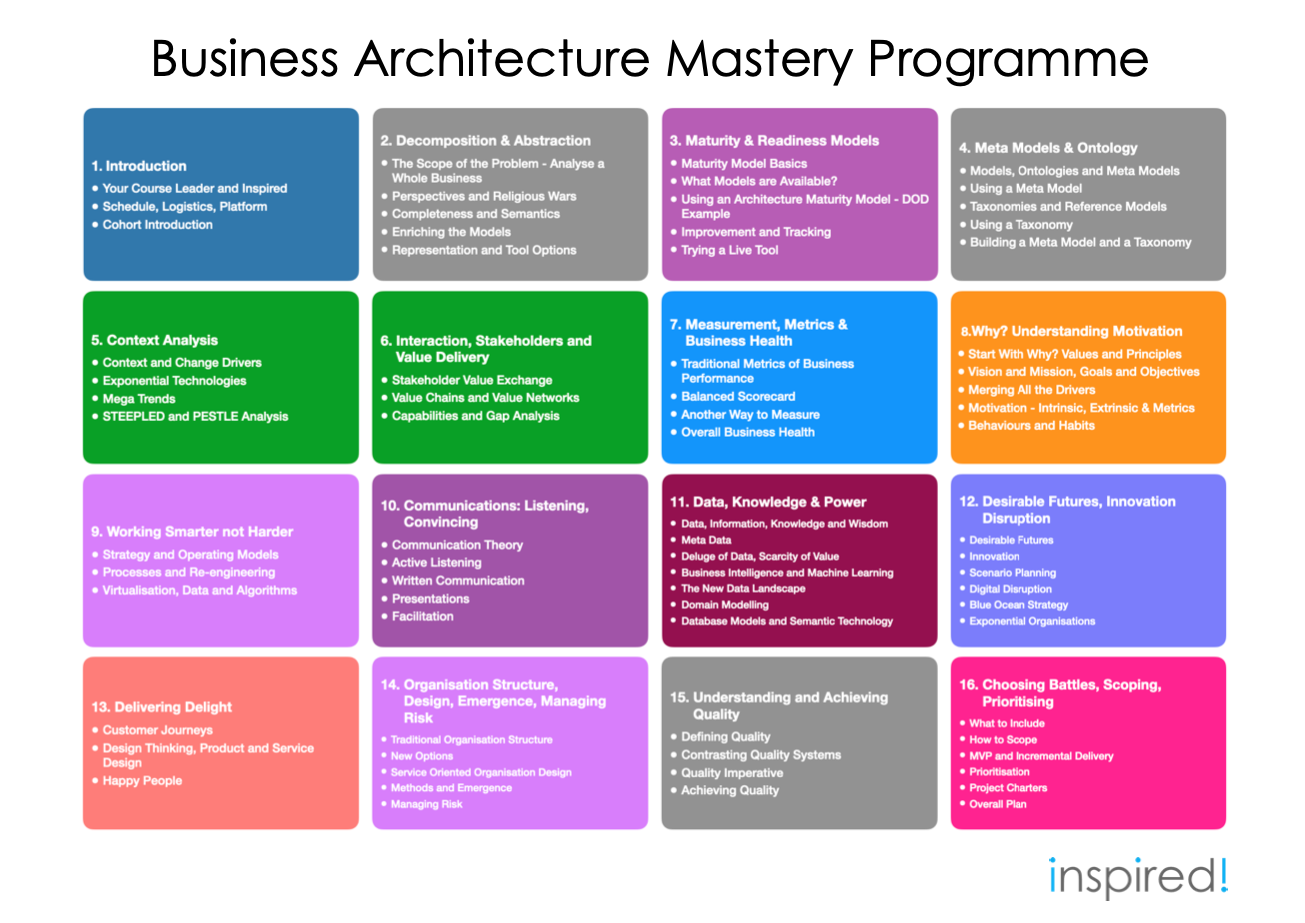Our 2021 BA Scorecard assisted aspirant/current BAs to assess their capabilities. Of 2256 visitors, 917 proceeded to the scorecard. We just updated the Scorecard to V2.
Take the revised survey here ➔
Some insights from the original in the graphic below.
Overall scores balanced: Low 34%; Medium 50%; High 17%, indicates that most participants need further skill development. Expected as the cohort is keen to transition to a professional business architect role.
Lowest score categories: Learning and Development; Qualifications and Experience; Business Architecture Scenarios.
Few individuals/employers commit enough time and effort to growing skills necessary to maintain competence in this fast evolving discipline. More formal training and certification needed. BA is a young discipline, so experience levels are low relative to other fields.
BA Scenarios are uniquely covered by the Business Architecture Guild, so many are not familiar with theseHighest score categories: Soft Skills; Management, Leadership and Culture; Ontologies and Taxonomies.
Augers well for attention to people, organisation, stakeholder management and communication aspects required of BAs. Participants are relatively senior and have gained important skills in their current roles.
Good appreciation for the value of ontologies/taxonomies and meta models to structure work, gather information, assess maturity and achieve integrationGood capabilities found for: Related Disciplines; Modelling Skills; Maturity, Readiness and Quality.
Good knowledge of related disciplines can support alignment and communication.
Familiarity with some modelling paradigms/techniques, but few participants with the broader set available.
Fair use of maturity models and QA techniques.Modest capabilities for: Strategy Tool Use and Business Model knowledge.
Strategy Tools use was quite low, reflecting the state of BA, often seen as a progression from EA, with strong I.T. / I.S. emphasis. Most practices today have an internal focus. The scorecard reflects our view that BA involves the design of future business and requires high competence in strategy tools, business models and awareness of contextual factors
What have we changed? We kept the broad structure and categories with relatively small adjustments. We did extract some core competencies into a new category labelled “Modes of Thinking”. Some detailed changes:
Broke up a question which reduced completion
Combined some separate questions into multiple selection questions to save time
Added the Modes of Thinking category
Explicitly included Change Management
Added Wardley Maps
Provided examples to clarify some questions
Added AI Reference Model
Refined question around Solution Delivery Approach
Tweaked balance of scores to reflect needs across categories
Graphic below shows categories assessed and relative scores.
Take the revised survey here ➔
Feedback is welcome! Send us your thoughts at BASurvey@inspired.org.
























